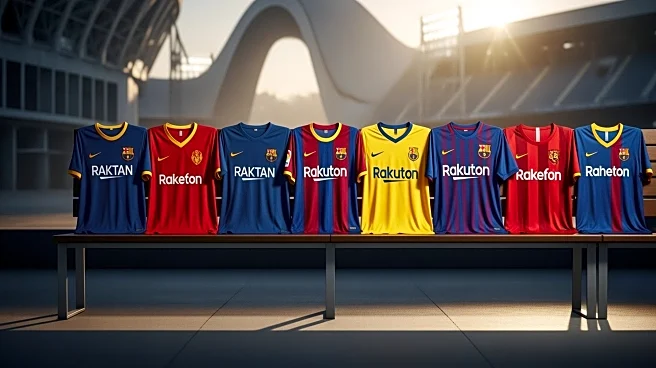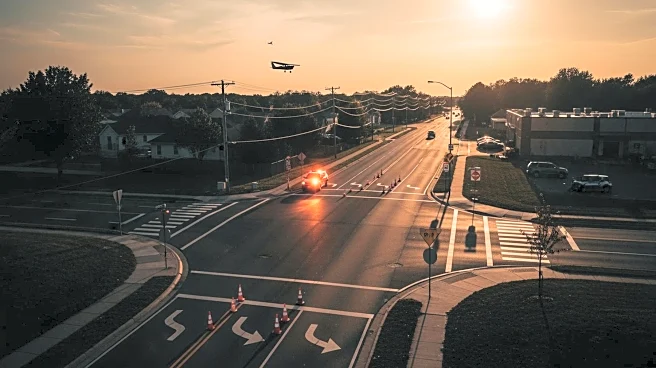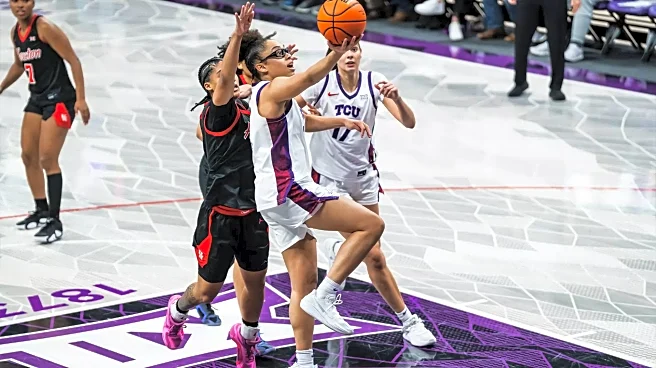What's Happening?
Players from La Liga are planning a protest against the decision to host Villarreal's home game against Barcelona in Miami. The Spanish Player's Association (AFE) and team captains are frustrated with
the lack of communication and involvement in the decision-making process by La Liga. A meeting scheduled between La Liga and the AFE was canceled at the last minute, leading to further dissatisfaction. The players are considering a protest during this weekend's matches, potentially refusing to play for the first 30 seconds of each game. Real Madrid has also expressed opposition to the game, appealing to UEFA, FIFA, and Spain's Ministry for Sport to prevent it. However, UEFA has confirmed it will not intervene, and FIFA is unlikely to step in, leaving the game set to proceed unless players strike.
Why It's Important?
The protest highlights significant discontent among players regarding the organization and communication of international games. Hosting a La Liga match in the USA is part of a broader strategy to expand the league's global reach, but it has sparked controversy over player rights and the integrity of domestic competitions. The players' potential protest could impact the league's reputation and its relationship with players, possibly influencing future decisions on international matches. The situation underscores the tension between commercial interests and the traditional values of the sport, with players advocating for more involvement in decisions that affect their careers.
What's Next?
If the protest goes ahead, it could set a precedent for player activism in sports, potentially leading to more organized efforts to influence league decisions. The outcome may prompt La Liga to reconsider its approach to international games and improve communication with players. Stakeholders such as UEFA, FIFA, and national sports ministries may face pressure to address player concerns more effectively. The protest could also influence other leagues considering similar international expansions, highlighting the need for balancing commercial interests with player welfare.
Beyond the Headlines
The protest raises ethical questions about the commercialization of sports and the impact on player rights. It could lead to discussions about the governance of sports leagues and the role of players in decision-making processes. The situation may also reflect broader cultural shifts in sports, where players are increasingly using their platforms to advocate for change. Long-term, this could lead to more collaborative approaches in sports management, ensuring that players have a voice in decisions that affect their professional lives.










